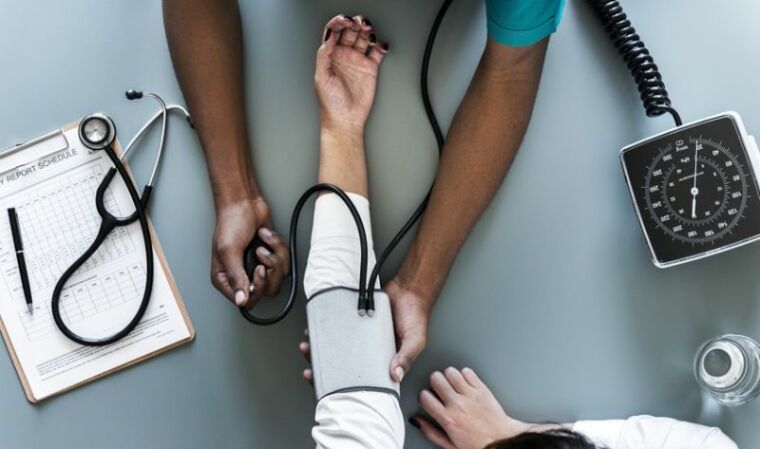Pneumonia – some perspectives on causes, diagnosis, and prevention

* Partner Post
Pneumonia is a lung infection that results in the inflammation of the air sacs, which may then fill up with fluid causing cough accompanied by fever, chills, and difficulty in breathing. A large number of viruses, bacteria, and fungi can cause pneumonia. The severity can range from mild to life-threatening; the most susceptible are the very young, the old, and those with health problems resulting in weakened immune systems.
Symptoms
In its mild form, pneumonia symptoms resemble that of cold or flu, however, many people experience shortness of breath, chest pain when coughing or breathing, confusion, plenty of production of phlegm, fatigue, fever, shaking chills, and sweating, vomiting, nausea, or diarrhea, restlessness, and loss of appetite. Old people of over 65 years of age or children below two and those with underlying health issues leading to deficiencies in the immune system are especially at risk and should seek immediate medical attention. Persons who are or have been hospitalized or have chronic diseases like, chronic obstructive pulmonary disease, heart disease, asthma, or those who smoke tobacco or abuse drugs are at special risk.
Diagnosis
Typically, if the doctor suspects pneumonia, he will order blood tests that will reveal the presence of the bacteria. It is quite common for the tests to employ polymerase chain reaction (PCR) technique to amplify trace amounts of DNA of the bacteria so that a positive identification can be made. Advancements in technology and the use of chemicals and enzymes commonly available from https://www.mybiosource.com/ in Real-time PCR have made the task relatively easier. After the DNA amplification, the comparison with known-source nucleotide segments enables identification of aberrations that can confirm the onset of pneumonia.
Causes
Common bacteria and viruses present in the air around us can cause pneumonia when our bodies are unable to prevent them from infecting us due to a weakened immune system. Pneumonia is generally classified on the basis of where the infection is contracted from. In cases of community-acquired pneumonia, Streptococcus pneumoniae bacteria infection is most common with bacteria-like organisms, fungi, and viruses also affecting a lot of people.
Many people contract pneumonia during a stay in the hospital; the infection can be severe as the bacteria may be more resistant to antibiotics, and people may already be weak from other diseases. Even people visiting the outpatient clinics or living in long-term care facilities may suffer from severe pneumonia due to increased exposure to antibiotic-resistant bacteria. Aspiration pneumonia may also develop on inhalation of food and drink, saliva or vomit if the normal gag reflex is impaired due to any reason.
Conclusion
Although pneumonia can be treated quite effectively when diagnosed on time, it still is among the diseases that can be prevented with some effort. Speak to your doctor regarding vaccination, especially for children, and practice good hygiene, taking special care to wash hands before eating and taking regular baths. It is important to maintain a healthy lifestyle by exercising regularly, sleeping enough, and eating well. Quitting smoking is vital to prevent damage to the natural defense mechanism of your lungs.
 Christians don't have to affirm transgenderism, but they can’t express that view at work: tribunal
Christians don't have to affirm transgenderism, but they can’t express that view at work: tribunal Archaeology discovery: Medieval Christian prayer beads found on Holy Island
Archaeology discovery: Medieval Christian prayer beads found on Holy Island Presbyterian Church in America votes to leave National Association of Evangelicals
Presbyterian Church in America votes to leave National Association of Evangelicals Over 50 killed in 'vile and satanic' attack at Nigerian church on Pentecost Sunday
Over 50 killed in 'vile and satanic' attack at Nigerian church on Pentecost Sunday Ukrainian Orthodox Church severs ties with Moscow over Patriarch Kirill's support for Putin's war
Ukrainian Orthodox Church severs ties with Moscow over Patriarch Kirill's support for Putin's war Islamic State kills 20 Nigerian Christians as revenge for US airstrike
Islamic State kills 20 Nigerian Christians as revenge for US airstrike Man who served 33 years in prison for murder leads inmates to Christ
Man who served 33 years in prison for murder leads inmates to Christ


 Nigerian student beaten to death, body burned over ‘blasphemous’ WhatsApp message
Nigerian student beaten to death, body burned over ‘blasphemous’ WhatsApp message 'A new low': World reacts after Hong Kong arrests 90-year-old Cardinal Joseph Zen
'A new low': World reacts after Hong Kong arrests 90-year-old Cardinal Joseph Zen Iran sentences Christian man to 10 years in prison for hosting house church worship gathering
Iran sentences Christian man to 10 years in prison for hosting house church worship gathering French Guyana: Pastor shot dead, church set on fire after meeting delegation of Evangelicals
French Guyana: Pastor shot dead, church set on fire after meeting delegation of Evangelicals ‘Talking Jesus’ report finds only 6% of UK adults identify as practicing Christians
‘Talking Jesus’ report finds only 6% of UK adults identify as practicing Christians Mission Eurasia ministry center blown up in Ukraine, hundreds of Bibles destroyed: 'God will provide'
Mission Eurasia ministry center blown up in Ukraine, hundreds of Bibles destroyed: 'God will provide' Church holds service for first time after ISIS desecrated it 8 years ago
Church holds service for first time after ISIS desecrated it 8 years ago Burger King apologizes for 'offensive campaign' using Jesus' words at the Last Supper
Burger King apologizes for 'offensive campaign' using Jesus' words at the Last Supper Uganda: Muslims abduct teacher, burn him inside mosque for praying in Christ’s name
Uganda: Muslims abduct teacher, burn him inside mosque for praying in Christ’s name